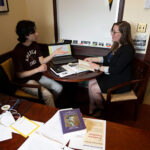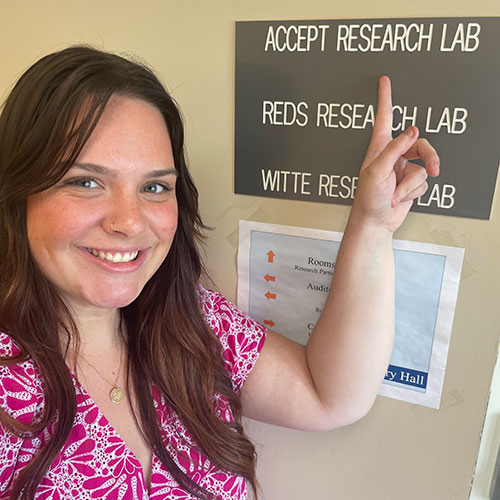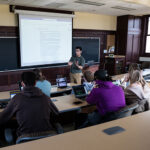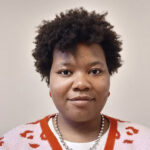
Psychology and women’s, gender, and sexuality studies major gains lab research experience during summer APEX Fellowship

Emilie Eustace ’24, a psychology and women’s, gender, and sexuality studies major at The College of Wooster, has seen a notable increase in her confidence since completing her APEX Fellowship this summer. While working at AppearanCe Concerns, Eating, Prevention, & Treatment (ACCEPT) Lab at Auburn University, Eustace did research on disordered eating behaviors by analyzing psychological data. While under the mentorship of Hilary Edgington, visiting assistant professor of biology, Eustace confirmed her interest in applying for research graduate programs and refined her skills in the lab.
“The position was a good fit for me because it allowed me to gain research experience within the field of psychology and helped confirm my interest in pursuing research as a career. It also has prepared me for applying to graduate programs that fit with my interests.”
—Emilie Eustace ’24
How did you learn about the internship opportunity for your APEX Fellowship? Why was the position a good fit for you?
“I reached out to a professor at a psychology lab that studied a topic that I was interested in researching. Although I reached out to multiple people, only one professor replied, but that is all that matters! The position was a good fit for me because it allowed me to gain research experience within the field of psychology and helped solidify my interest in doing research as a career and attending clinical Ph.D. programs.”
What interests you most about the work you did?
“Performing research within the field of psychology, specifically looking at disordered eating behaviors, was the most interesting part of my internship. In doing this, I was able to increase research in an area where groups of minoritized people are not acknowledged and included. Each day I performed research both on my own and with other members of the lab and attended meetings with both my supervisor and students in the lab.”
Who was your fellowship mentor and how did they help you to succeed in this position?
“My fellowship mentor was Hilary Edgington, visiting assistant professor of biology. She helped me by providing feedback on my weekly reflective reports to make me think critically about the experiences I was gaining from my internship and the fellowship process in general.”
What are some skills you’ve learned that you see yourself carrying forward in your career?
“Increased communication skills, increased confidence in my own abilities regarding my skills in research, and increased skills in software used to analyze psychological data are all skills I see myself carrying forward in my career.”
How has the internship helped you to see what’s next for you?
“This experience helped confirm my interest in pursuing research as a career through obtaining a Ph.D. and has prepared me for applying to graduate programs that fit with my interests.”
Posted in Experiential Learning on August 16, 2023.
Related Posts
Related Areas of Study
Women's, Gender, & Sexuality Studies
Champion the experiences of women as they intersect with race, nation, ability, class, religion, and other axes of difference
Major MinorPsychology
Do research, work with faculty mentors, and tailor a psychology program to your interests
Major Minor

